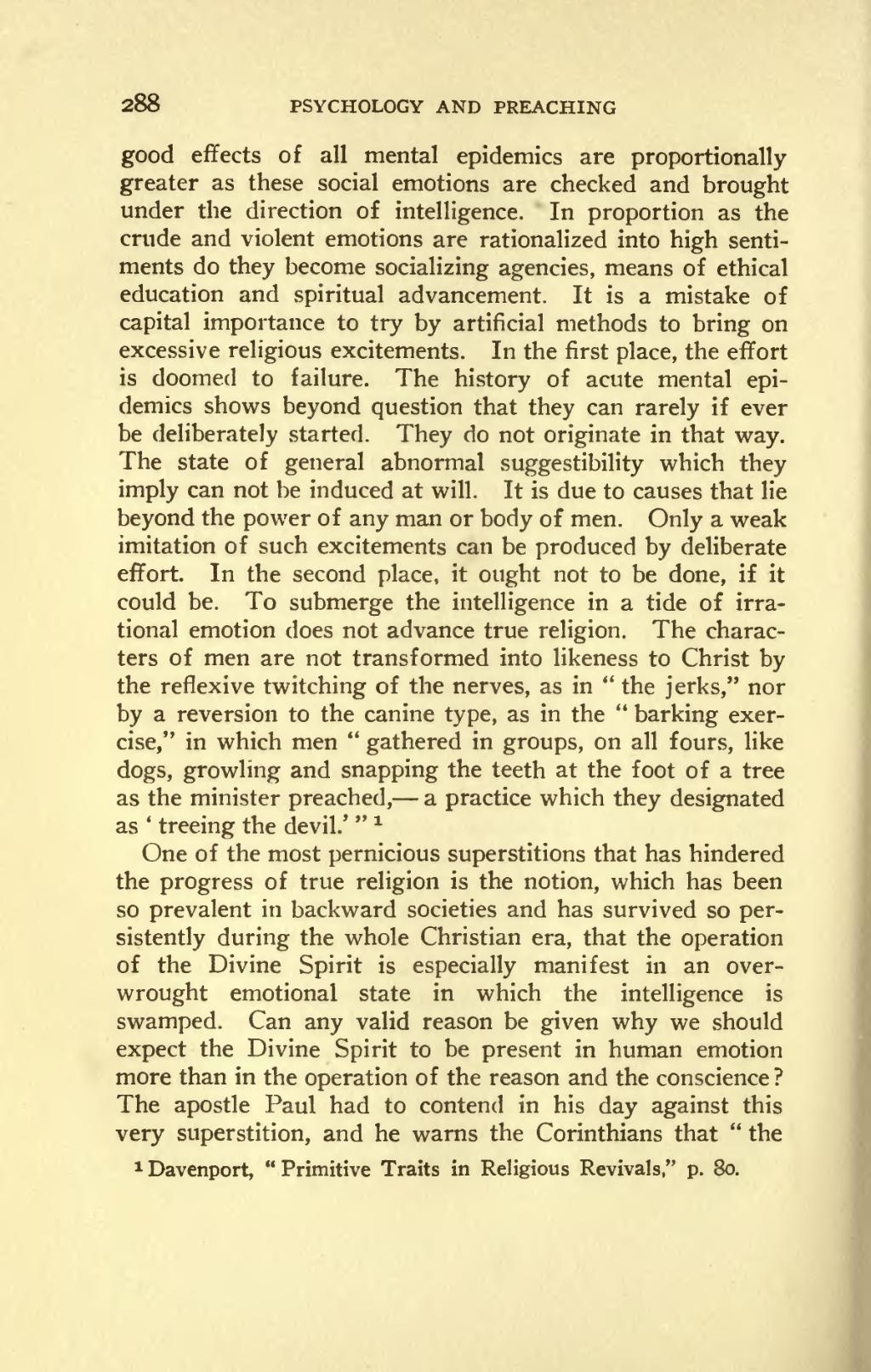288 PSYCHOLOGY AND PREACHING
good effects of all mental epidemics are proportionally greater as these social emotions are checked and brought under the direction of intelligence. In proportion as the crude and violent emotions are rationalized into high senti ments do they become socializing agencies, means of ethical education and spiritual advancement. It is a mistake of capital importance to try by artificial methods to bring on excessive religious excitements. In the first place, the effort is doomed to failure. The history of acute mental epi demics shows beyond question that they can rarely if ever be deliberately started. They do not originate in that way. The state of general abnormal suggestibility which they imply can not be induced at will. It is due to causes that lie beyond the power of any man or body of men. Only a weak imitation of such excitements can be produced by deliberate effort In the second place, it ought not to be done, if it could be. To submerge the intelligence in a tide of irra tional emotion does not advance true religion. The charac ters of men are not transformed into likeness to Christ by the reflexive twitching of the nerves, as in " the jerks," nor by a reversion to the canine type, as in the " barking exer cise," in which men " gathered in groups, on all fours, like dogs, growling and snapping the teeth at the foot of a tree as the minister preached, a practice which they designated as treeing the devil. " x
One of the most pernicious superstitions that has hindered the progress of true religion is the notion, which has been so prevalent in backward societies and has survived so per sistently during the whole Christian era, that the operation of the Divine Spirit is especially manifest in an over wrought emotional state in which the intelligence is swamped. Can any valid reason be given why we should expect the Divine Spirit to be present in human emotion more than in the operation of the reason and the conscience ? The apostle Paul had to contend in his day against this very superstition, and he warns the Corinthians that " the
1 Davenport, " Primitive Traits in Religious Revivals," p. 80.
�� �
